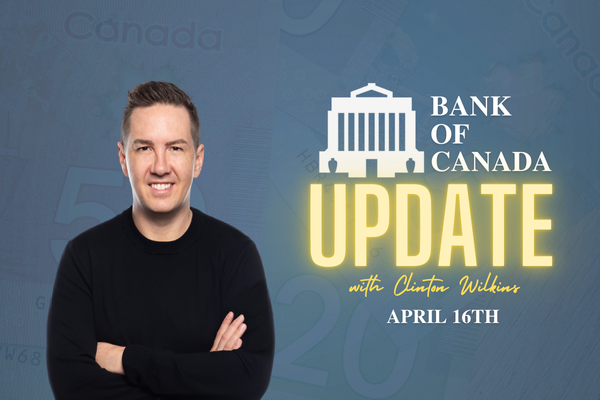On 95.7 News Radio, Clinton and Todd discussed the importance of credit monitoring due to rising fraud and data breaches.

Increases to the Bank of Canada overnight rate
Increases to the Bank of Canada overnight rate
Eight times a year the Bank of Canada meets to decide the overnight interest rate, basing it off the economy’s current state. The Bank of Canada will raise rates when it wants to decrease inflation; lower rates when it wants to stimulate the economy. The overnight rate, or policy rate, is the interest rate that large banks must pay for short-term loans. Large banks will use the overnight rate as a benchmark when setting their interest rates. Changes in the overnight rate will affect what consumers pay to those banks for mortgages, lines of credit, and savings accounts.
In the most recent meeting that the Bank of Canada had to discuss interest rates. They decided to increase the overnight rate by a quarter-point to 1.5 per cent. Despite concerns over the growing trade tensions, on-target inflation and a strong labour market helped to support the decision to increase the overnight rate. They will continue to monitor trade issues, leaving the door open for a rate cut if things get worse. The Bank of Canada’s Governor, Stephen Poloz, explained that policymakers are going to take a gradual approach to any future changes, but that “higher interest rates will be warranted.” Economists expect that the bank will keep moving cautiously, hiking the overnight rate without excessively harming the economy.
What does this mean for YOU?
Through an improvement to the job market, the Bank of Canada is looking to make the Canadian housing market and mortgage game more serious. Growth in the Canadian economy will continue to see greater contributions from business investments and exports. Household spending is expected to represent a smaller share due to the diminishing effects of higher interest rates mixed with stricter mortgage rules.
Increases in the overnight rate will affect some Canadian borrowers that have variable-rate loans. Anything with a variable rate, like business loans and mortgages, will cost more to service and rates will go up. For borrowers with a variable-rate mortgage, they will see changes in what they pay also immediately. This will limit how much money they have available to them each month. Borrowers with fixed-rate mortgages will not see changes in their payments since they will lock in their rates.
Higher interest rates will help keep Canadians focused on restricting the amount of debt they rack up. They will instead be able to pay down their current debt. Having stricter mortgage rules, along with higher interest rates, will help cool down the country’s real estate market and help future homeowners. It will also benefit seniors who are dependent upon their interest income to pay retirement expenses.
What to learn more about the changing interest rates? Talk to one of our experts at Clinton Wilkins Mortgage Team by clicking here.


